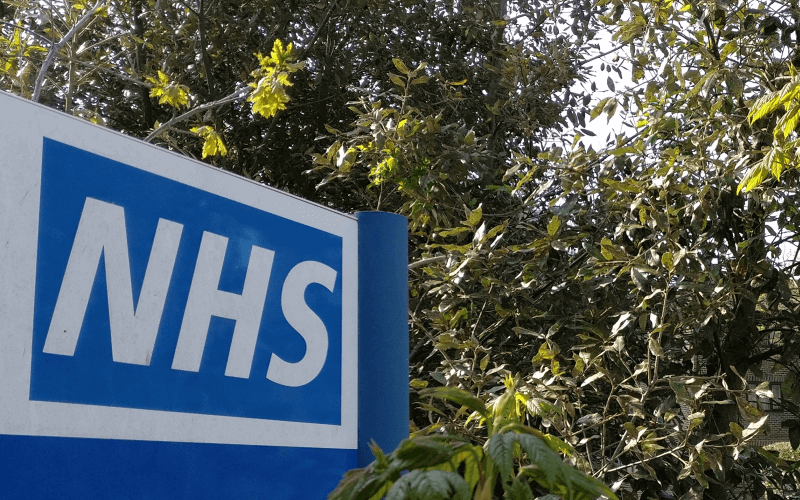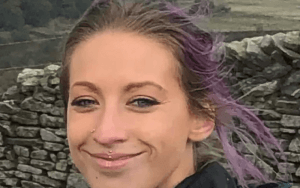Five disabled activists who helped expose an “unlawful, unethical and unacceptable” mental health scheme have spoken of the huge personal toll their campaigning has taken on them, and the lack of support they received from the large mental health charities.
The campaigners, all mental health service-users, are just some of the members of the StopSIM coalition which played a key role this year in raising awareness of the dangers posed by the multi-agency Serenity Integrated Mentoring (SIM) scheme.
Their campaigning revealed the flaws in the “sinister” and “disturbing” scheme and persuaded NHS England to order local reviews of how it had been implemented by trusts across the country, seven years after it was first piloted on the Isle of Wight.
But they revealed this week that the intensive research, meetings and lobbying had impacted their own mental health and left them struggling close to burnout.
One of them said: “It’s still hard to know whether the cost has been worth it.”
Another of the campaign team said: “I am so pleased that we have done what we have done, and I’m pleased that we are all here now, and we’re safe, but in terms of the personal cost, I don’t know if that can be quantified.
“I don’t know a way to say if that’s been worth it.”
One of her colleagues said they had all had to take a break from campaigning because of the deterioration in their mental health caused by the intense work on highlighting the dangers of SIM.
But she said the large organisations, charities and professional bodies that had the resources to take on the SIM campaign had failed to do so.
She said: “Had we had those resources for six months or a year we could have achieved so much more, and that makes me really sad and angry.
“Why haven’t those organisations, charities, professional bodies, who have – some of them – millions of pounds in the bank, why haven’t they pushed this any further? And that upsets me too.”
The five – Luna Tic, Sunny, Hope, Bethan and Hattie – were taking part in a podcast interview recorded by the user-led mental health network NSUN, which they praised for stepping in to ensure they received the peer support they urgently needed through the new user-led organisation Peer Hub.
The first half of the interview, carried out by NSUN member Erica, was released on Monday as part of NSUN’s two-day annual general meeting.
Hope said she had called publicly for national charities and other organisations with more resources and campaigning experience to continue the anti-SIM work but had been answered with “radio silence”.
She said: “That’s been really disappointing and disillusioning because these charities purport to be there for people who have experienced mental illness when we need them and they are not, so that has been really horrible to witness really.”
One of her colleagues added: “I still feel furious at the people whose job it is to protect people under SIM, to protect service-users, to do the job that we were doing through campaigning.”
SIM focused on users of mental health services – often those at high risk of suicide and self-harm – who had not committed a crime but were seen as “high intensity users” of emergency services.
It was first trialled in 2013 on the Isle of Wight, but by this year was believed to have been rolled out to nearly half the mental health trusts in England, and it had been backed by NHS England and recognised with national awards.
But an increasing number of disabled activists began to warn that it was based on coercion and denial of potentially life-saving support and was causing some service-users to live in fear of arrest or prosecution when they were in mental health crisis.
Hattie said the realisation that SIM had been allowed to continue for so long had been “terrifying”.
They said there had been “a lot of shock as we were processing that this was able to happen… there were a lot of safeguarding concerns that should have been picked up”.
Bethan said: “We should never have been placed in a position where a national rollout of a scheme went unchecked, undetected, and we were responsible for getting it stopped.
“It’s unfathomable that this could have happened, it really is.”
They had decided early on that they needed to focus their lobbying on senior figures in NHS England.
One of the StopSIM campaigners said: “We knew right from the off that we had to target the campaign towards the people who had the power and the influence to make decisions to change things… we knew that we had to target NHS England.”
Another of the team said there had been frustration that organisations and charities met regularly with NHS England (NHSE), and yet the coalition has met with just one NHSE representative and even that was not an official meeting, while there had been no proper dialogue with NHSE.
She said: “It just feels really unjust and unfair that we have done so much work in our own time unpaid and we don’t get to meet them about something so significant.”
The five campaigners and the other members of the coalition came together after increasing concerns were raised on Twitter about both SIM and the High Intensity Network (HIN), which supported NHS trusts and police forces that signed up to SIM and was set up by the scheme’s founder, former police officer Paul Jennings.
The work of the coalition and other activists led to the closure of HIN and NHS England ordering reviews by local trusts of their use of SIM. The results of these reviews have yet to be published.
*The second half of the interview will be published on Monday (6 December).
A note from the editor:
Please consider making a voluntary financial contribution to support the work of DNS and allow it to continue producing independent, carefully-researched news stories that focus on the lives and rights of disabled people and their user-led organisations.
Please do not contribute if you cannot afford to do so, and please note that DNS is not a charity. It is run and owned by disabled journalist John Pring and has been from its launch in April 2009.
Thank you for anything you can do to support the work of DNS…

 ‘Disastrous’ cuts bill that leaves legacy of distrust and distress ‘must be dropped’
‘Disastrous’ cuts bill that leaves legacy of distrust and distress ‘must be dropped’ DWP helped cause mental distress of poverty-stricken benefit claimant who took her own life, says coroner
DWP helped cause mental distress of poverty-stricken benefit claimant who took her own life, says coroner Research links increase in ill-health to rising benefit claims, just as government prepares ‘catastrophic’ cuts
Research links increase in ill-health to rising benefit claims, just as government prepares ‘catastrophic’ cuts